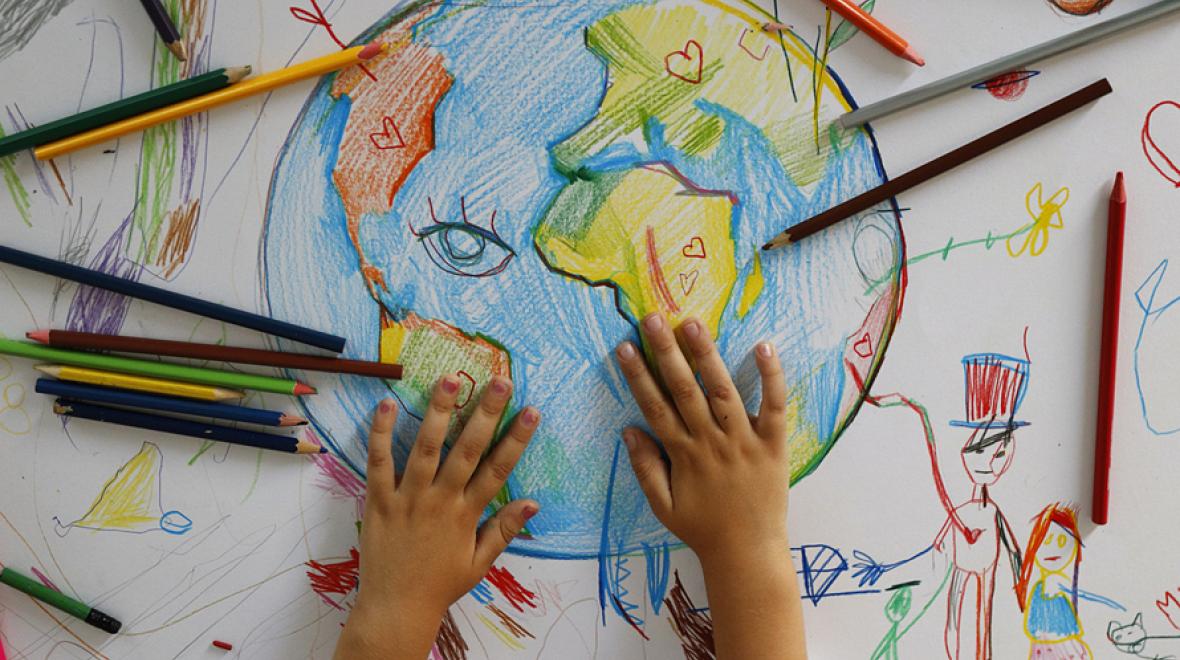
Since our kids don’t enter the world bearing a convenient step-by-step instruction manual, parenting can feel like the ultimate guessing game. When it comes to raising children with character and values, we’ll take all the help we can get, so we seek advice from friends, family members or trusted online parent groups. Sometimes being a great parent requires thinking outside the box — or perhaps, in some cases, even thinking outside our borders. Five transnational moms offer inspirational parenting tips to help us elevate our child-rearing potential.

Focus on family and community connections
In India, where the joint family system remains an important societal infrastructure, family comes first. San Francisco resident Vinita Singhania grew up in Barakar, West Bengal, in a multigenerational home with her parents, aunts, uncles and grandparents. This familial structure promoted a strong sense of community, one in which family bonds were strong, Singhania says.
“We were not a lavish family; resources were few. We didn’t have separate rooms, and we shared everything, even a piece of fruit. It made us closer. There was always someone there running the house, so my parents never had to think twice about babysitters. If they had to go for a vacation, they just went, and if they had to go to a wedding for three–four days, they could just go.”
You can’t tell your kids everything you want them to learn — you have to show them.
Now a parent herself, Singhania helps perpetuate the close family connection she experienced growing up by traveling to India every year with her own daughters, staying for a month or more; reciprocally, her parents visit the family in the United States for as long as six months annually. “You can’t tell your kids everything you want them to learn — you have to show them. When we are in India, they see the village and the culture. They see us treating our family with respect, and they experience our traditions and customs,” says Singhania.
To familiarize her daughters with the country’s traditional flavors, Singhania prepares one Indian meal daily. Every week, the family attends temple, where Singhania hopes her girls are learning and internalizing the core values and beliefs of their Indian culture and developing strong community ties. “Weekends are always spent with friends. We participate in Indian festivals and celebrate our traditions together; it becomes a big family because everyone has the same values,” says Singhania.
Her close-knit family operates with an open-door policy and an emphasis on open communication. “When the girls were born, we kept their crib in our room for a long time; that way, you create that bond, that safety, that security. Later on, if they came in the room at night, I would let them sleep in our bed. Now, meals are a chance to bond with each other, and we share our problems. We work things out as a family, not individually,” says Singhania.
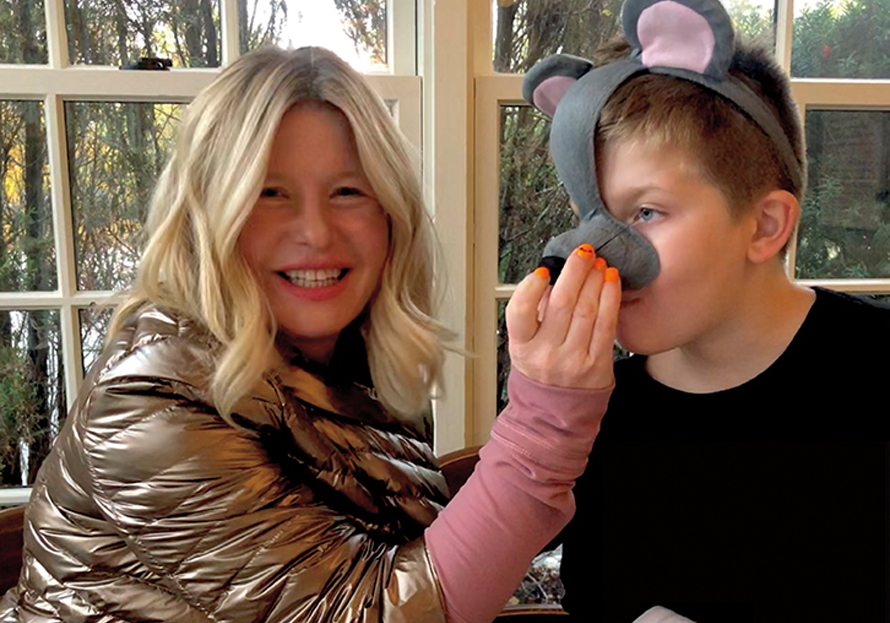
Dispense mutual respect and plenty of love
Born and raised in Tver, a Russian city northwest of Moscow, Shanna Fiszer relocated to America at the age of 19 during the wild ’90s, a decade defined in her native country by the fall of the Soviet Union, rampant crime and financial instability; she describes her younger self as “young, full of courage and on a mission.”
For Fiszer, the effects of a rigid upbringing caused her to adopt a more easygoing parenting style. “In Eastern Europe, parents were pretty rough with their kids, and they still are. They are very strict. They yell and they spank. It’s a very different approach than I take; there’s no way I’m treating my son like that. My relationship with him is more like a friendship. He’s not scared of me, but I am an authority figure for him. He respects me. I talk to him about his feelings, because when I was growing up, no one really cared about my feelings,” says Fiszer.
My relationship with him is more like a friendship.
Though Fiszer prides herself on being a laid-back parent, she encourages her 7-year-old son, Josh, to connect with his cultural roots. The pair have traveled back to Russia several times, and Josh is learning to speak the language. “During quarantine, we started walking outside at least an hour a day, speaking Russian on our walks. He’s made a lot of progress, and now he’s taking Russian classes,” says Fiszer.
Supplementary education is extremely popular in Russia, where parents keep their kids’ schedules packed with extracurriculars. While Josh participates in many different activities, Fiszer makes sure he is still having fun. She supports Josh’s pursuit of music, but rather than taking a punitive approach to learning (she was beaten on the hands as a child if she made a mistake playing the piano), she’s careful to encourage and praise her son’s hard work. Hiring a music instructor from her native country has been one way for her son to learn more about his background. “I found a Russian piano teacher who worked for a theater in Moscow, and she’s amazing. She’s very talented,” says Fiszer.
Most of all, Fiszer wants her son to be carefree, which is a decided divergence from the demanding, tough-love mindset that governed her own upbringing. “He wears life like a loose garment — he’s so much more easygoing than I am. I just want him to be happy; [I want] to see that boy’s smile and that light in his eyes. He’s an easy kid to raise; I’ve been blessed in that respect,” says Fiszer.
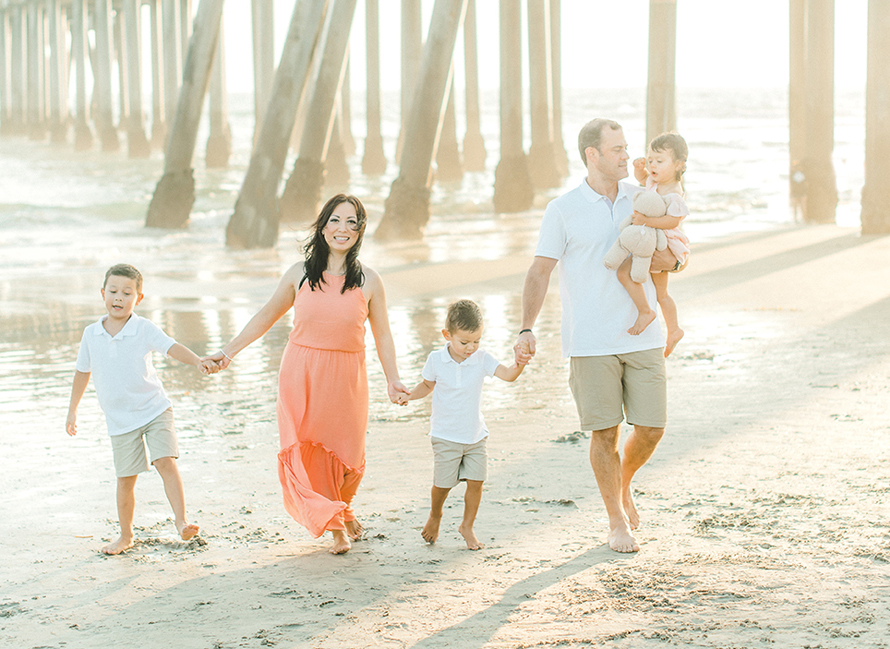
Model selflessness and respect for elders
When Vietnam native Cathy Scurci moved to the United States with her family at the young age of 3, her parents held on to their long-established Vietnamese cultural ideals, modeling a tight family unit. Scurci, who lives in Irvine, California, with her husband and three kids, strives to pass down the same values her parents inculcated in her.
Foremost among them was a deep respect for elders, Scurci says. “Respect was huge growing up in my culture. Aunts, uncles and cousins all have different tiers of respect. You have to call them by their title, then name. I teach my kids that when they see an elder like my parents, they fold their arms and bow, then say ‘Ah,’ a way of showing respect. When they ask us for something, I don’t just want them to say ‘Please,’ but ‘Please, Momma’ or ‘Please, Daddy.’ When they walk into someone’s house, I make them go say hello to all the elders, and the same goes when they leave.”
I tell my kids to appreciate when people do something for them, not to expect it, and to be generous without being calculating.
In Vietnamese culture, gifts are seen as tokens of gratitude and appreciation. Modesty and humility are exhibited at all times, and Scurci is proud of the selflessness — or absence of entitlement — her parents stressed. It’s a trait she hopes to cultivate within her own children. “I think with many Asian cultures, because people are less fortunate when they come here, they appreciate what they have. They are very appreciative of what people do for them, and they ingrain that sense of appreciation into their kids. I tell my kids to appreciate when people do something for them, not to expect it, and to be generous without being calculating. Everything is about others first, then yourself. When we eat with others, we fill their plates with food first before we fill our own. The same applies for everything else,” says Scurci.
Vietnamese parents view academic success as a way to advance an entire community’s success, not just the success of the individual. When it comes to education, Scurci says she’ll push her kids to aim high. “Growing up, my dad taught me that everything is in your mind. If you think you can, you can. If you think you can’t, you can’t. With education, if you shoot for the stars, you have a good chance of landing among the stars, right? If you try to go for the best, maybe you’ll end up close to the best.”
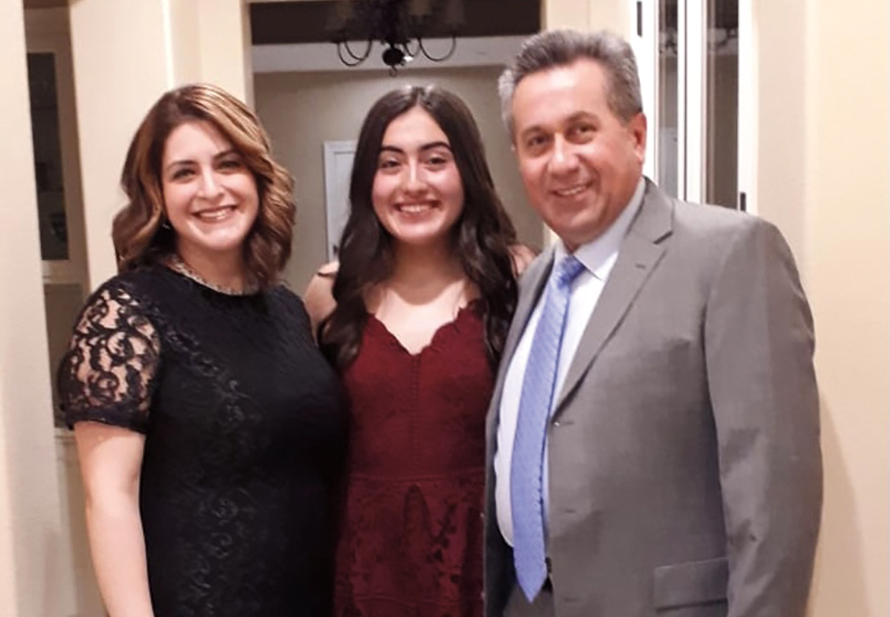
Emphasize education and travel, and be a good human
Promoting a multicultural life for teenage daughter Yasmeen is central to Hanan Abdeen’s parenting goals; the Yorba Linda, California, resident incorporates aspects from both her American and Syrian Muslim roots in her approach. Born in the United States, Abdeen moved to Saudi Arabia with her Syrian parents as a baby and lived in the country for just over a decade.
Education and exposure to other cultures are childhood highlights Abdeen has chosen to prioritize in her own experience of parenting. “My father was a professor, and each year a ticket overseas for him and his family was included in his salary. We visited a new country every year, and we came to the United States each summer, where my mom enrolled me in classes, from English to typing to computers.” Recently, daughter Yasmeen traveled to France, England and Ireland with a group of peers, then met up with Abdeen and her husband, Rami, in Germany.
While her parents never forced her to study, they made certain Abdeen went to college and earned a graduate degree, an endeavor Abdeen expects her daughter to pursue. “I instill in my daughter that no matter what, she’s going to college. School has always been our number-one focus. I’m putting her in leadership programs and making sure she’s volunteering, and she’s also a tutor,” says Abdeen.
I always tell my daughter that communication is the most important thing.
Syrian children are raised to obey and respect their parents, and Abdeen stresses honesty and open communication with her daughter. “In the house where I was raised, we didn’t close the doors; everybody’s room was open, and that’s how my house is, too. I always tell my daughter that communication is the most important thing. If you don’t communicate, you will have a lot of problems, and honesty helps build trust.”
Abdeen’s parenting method is also grounded in religious values. “There’s a misconception between the Arab culture and the Muslim religion, and I really like to differentiate the two, because the religion is a way of life. It’s a way to be every day. You have to be honest with yourself, honest with others, work hard, achieve whatever you can, pray the prayers you’re supposed to pray every day. We have a lot of pillars we have to follow, and those mold the kind of human being you become,” says Abdeen.
Teaching her daughter can be a challenge in a culture where followers of their religion are still a minority. “I always tell [Yasmeen] that if you respect yourself and your religion, people will respect you. You have to show you’re a good person by the actions you take when dealing with others. Children are amazing. In all of this, love is at the center of it all. And I really just want my daughter to be the best human she can,” says Abdeen.
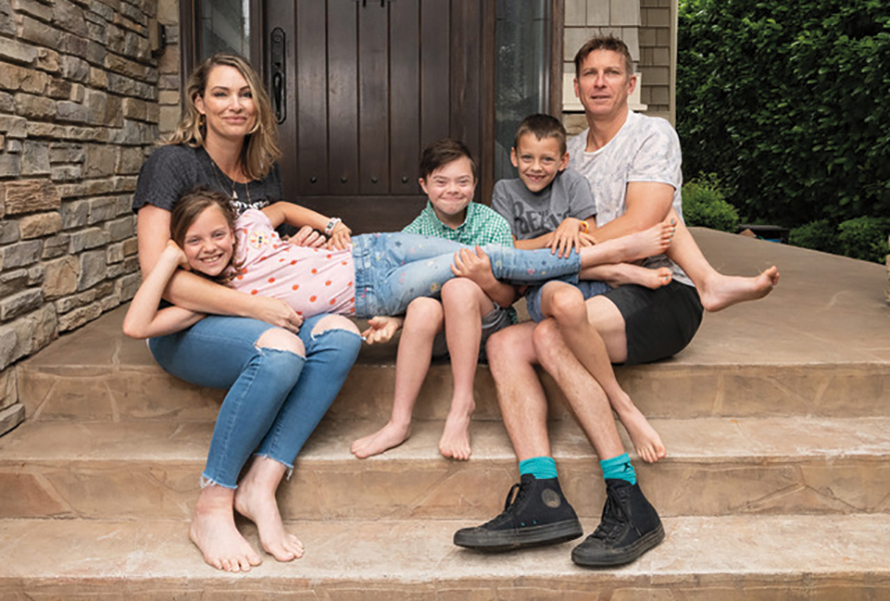
Laugh, love and look out for each other
Sinéad Quinn-Biskup, a Seattle, Washington, mom of three, was raised by her Irish parents in Australia, where the bond between her family members was strong. She hopes her own children are able to enjoy the same closeness. “The importance of family and always being there for your family can easily get lost. When I was growing up, if anyone was ever in trouble, there was always someone who would have your back. I teach that to my kids as well: You might be fighting now, but you’re going to be best friends for the rest of your life. I talk to them a lot about how their siblings are their best friends and strongest allies; no one is going to look out for you the way they will,” says Quinn-Biskup.
Having fun, not taking life too seriously and being able to laugh at yourself are things that are really important to me.
A key component of Quinn-Biskup’s upbringing was humor; growing up in Australia meant being able to make fun of yourself and laugh with each other. “Having fun, not taking life too seriously and being able to laugh at yourself are things that are really important to me. My kids still have manners — I’m strict about respect, saying please and thank you, and respecting your elders, and I was taught never to walk into somebody’s house without a gift. That was how I was brought up, but I’m pretty silly with a lot of things,” says Quinn-Biskup.
Though she expects her kids to work hard, Quinn-Biskup doesn’t push them beyond their capabilities. “The pressure on kids to perform is insane; it continues to amaze me. It’s the hugest difference between my cultural upbringing and here. Everything here is scheduled. You try to plan a playdate and it’s like, ‘My child is free in four weeks at 3:30 on a Tuesday.’ When I came here, I thought, ‘That’s just what you do here,’ so I signed my kids up for everything. I was juggling so many activities with therapies, it got so crazy that I pulled them out and canceled everything. When do they have time to be a kid? In Australia, when you apply to college you don’t get extra points for playing the cello,” says Quinn-Biskup. “I teach my kids to turn up, do their best, see what happens without all that pressure.”











